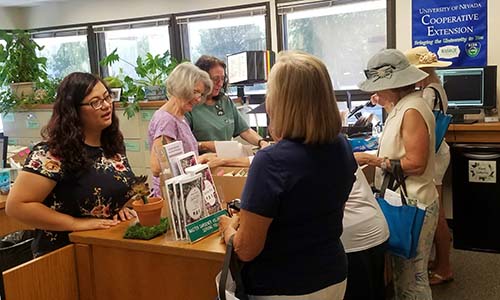 When you search online for vegetable gardening information, you are inundated with numerous blogs and articles with planting tips and tricks. Unfortunately, much of what is written is not supported scientifically. One of these topics is the concept of plant enemies.
When you search online for vegetable gardening information, you are inundated with numerous blogs and articles with planting tips and tricks. Unfortunately, much of what is written is not supported scientifically. One of these topics is the concept of plant enemies.
Plant enemies, as described by bloggers, are plants that harm other plants either by affecting some environmental need, competing for resources or affecting the taste of the part you want to eat. Much of what we know about incompatible plants is from gardener experience with no scientific backing. It’s important to look for citations within blogs or articles to find the scientific evidence before believing it as fact.
While searching for plant enemies, I came across some sources that were true and others that were myths.
One blog stated that some plant enemies are so because of their size. For example, a large tomato plant may tower over other low growing plants, such as bush beans, causing the bean plants to be shaded from the sun and not get the light they need. This is based on scientific fact, but it does not mean you cannot plant these two crops next to each other. You just want to provide more room between them so that the lower growing plants receive adequate light.
Another article explained there are plants that compete for resources, making them bad companions in the vegetable garden. Some examples in the article included onions and asparagus, pumpkins and potatoes, and peppers and kohlrabi. Though this is true, it is not because these plants are incompatible. Plants, in general, all naturally compete for resources. You want to provide your plants with the nutrients and water they need to yield the best crop, no matter what you are growing.
When it comes to plant enemies, you may see the term allelopathic. These plants secrete substances that can harm other plants. One of the most common allelopathic plants is the black walnut (Juglans nigra) tree. This tree produces juglone, a chemical that can inhibit growth and seed germination of neighboring plants.
Though allelopathy is true and researched widely, there are myths about common vegetables, such as broccoli. One article stated that broccoli may produce allelopathic residues in the soil that could harm other cabbage family plants such as cabbage or cauliflower, grown in the same area the following season. There is little supporting research that this is truly a problem in a garden setting. But it’s still a good idea to rotate your cabbage family plants to different areas of your garden from season to season to reduce the buildup of soil-borne pests.
Lastly, you may read that some plants, such as cucumber, can produce fruits that taste different when planted too close to strong-scented herbs such as basil or rosemary. As there is not scientific data backing this statement, we don’t recommend moving your herbs to avoid flavor damage.
So as you plan your garden for next year and surf the web for ideas, remember to check your sources and look for scientifically supported statements. Your local Cooperative Extension website and Master Gardeners are always your best resource.
Fisher, J.
2018,
Is it scientific or just a myth?,
Reno Gazette Journal


